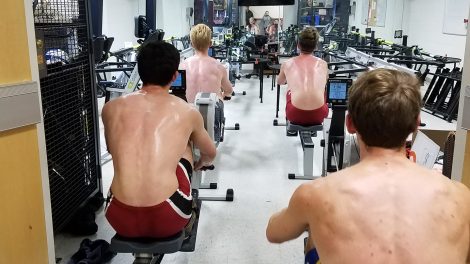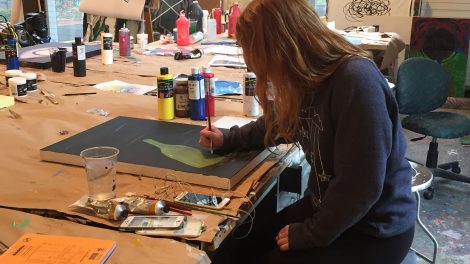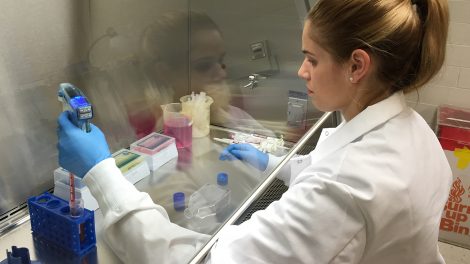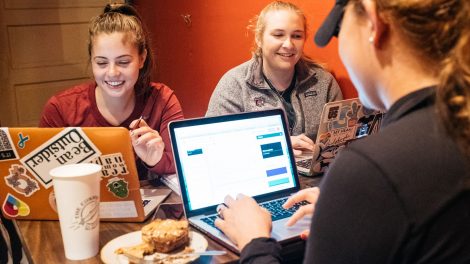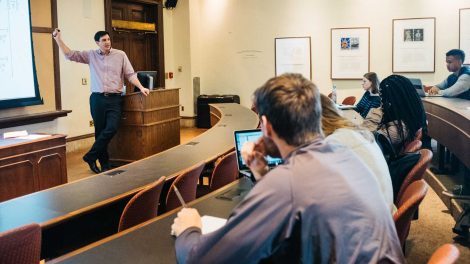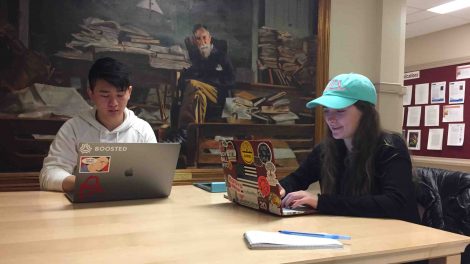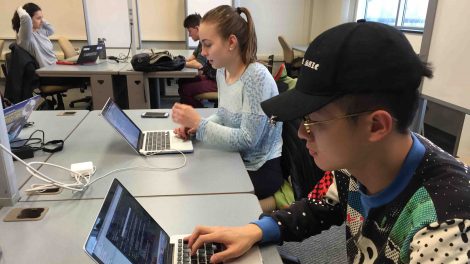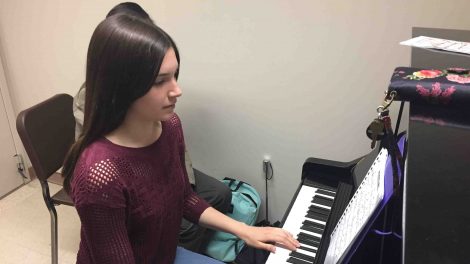9:30 a.m.
Tori Smith ’18, a chemical and biomolecular engineering major, seems to be working alone in the mammalian cell culture facility but in fact has the company of millions of hungry microscopic friends.
Like a caring guardian, she prepares a mid-morning breakfast of sorts for mice cells in need of a nourishing meal. Slipping on a white lab coat, safety glasses, and insulated gloves, she reaches into an ice-capped freezer set at minus 80 degrees Fahrenheit to retrieve cells.
“You don’t want to touch this freezer,” she says, working fast and precisely in the lab.
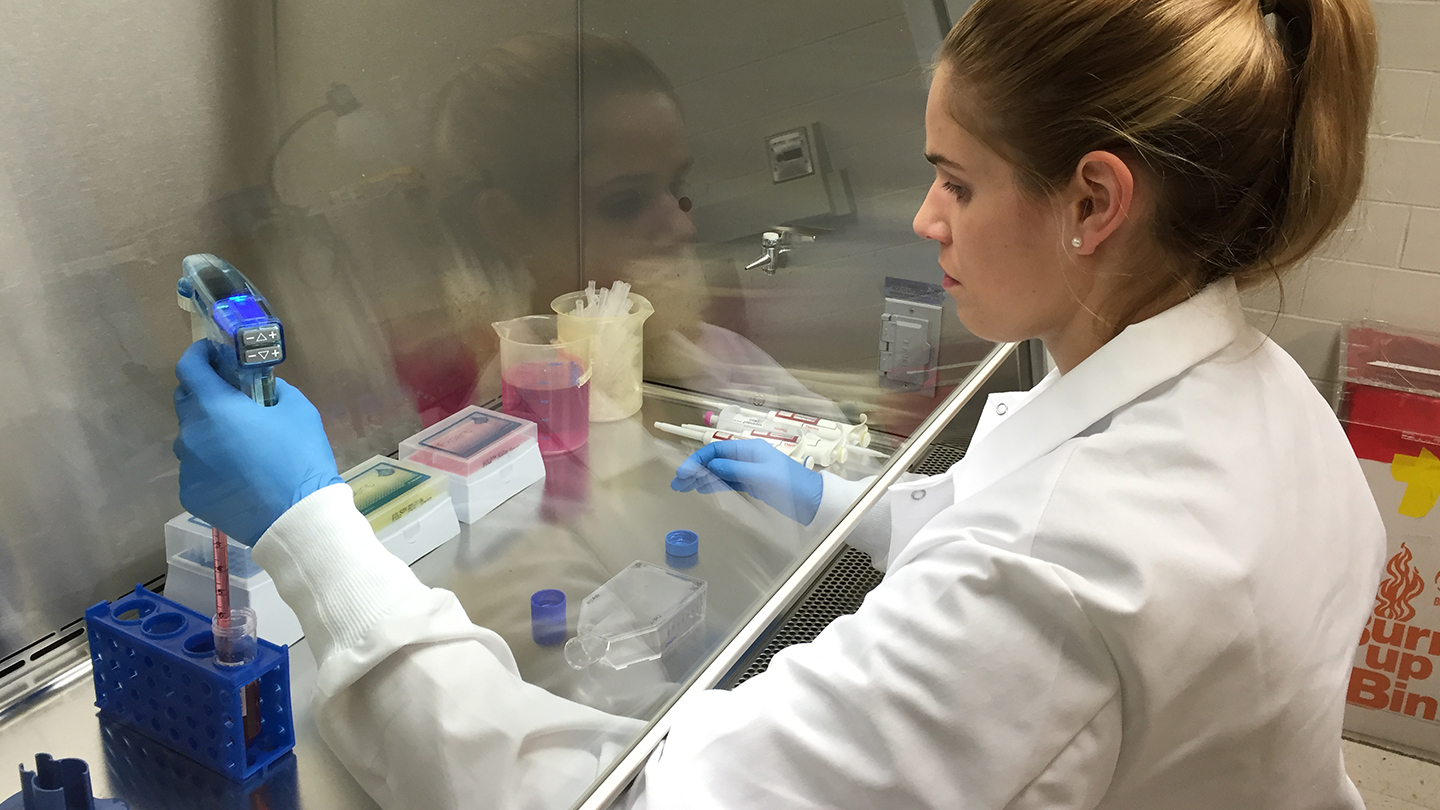
Moving to a sterile work area covered by a plastic hood, she opens a cell culture tube and uses a syringe to feed the cells a specific blend of proteins to help them grow. Chemical and biomolecular engineering students use tumorigenic (tumor-forming) cells, brain cells, and healthy skin cells from mice for the study of generating human tissue.
“They’re just like us—if they don’t get fed they’re not happy,” says Smith, who’s planning a career in medicine and was preparing to take her pre-med exam in Detroit in a few days. “They’re like having little children with you.”

